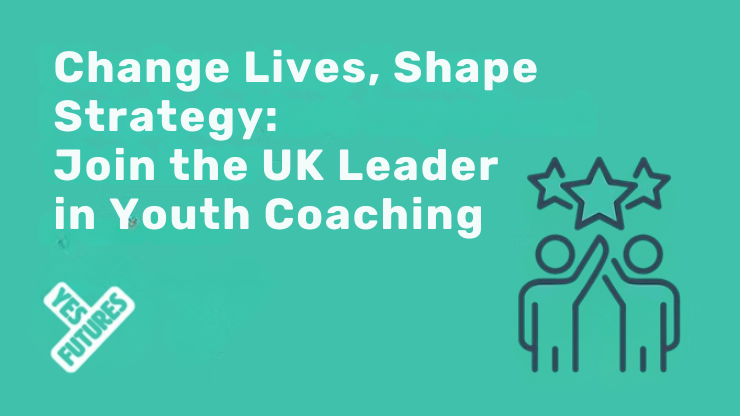#UnlockingEducation – A discussion on skills for the future
- Yes Futures
.png/v1/fill/w_320,h_320/file.jpg)
- Dec 21, 2022
- 4 min read
Covid-19 has brought uncertain circumstances and has forced us to make changes to the way we live all across the globe. Changes in education have caused many students to be left behind as we have moved from the classroom setting to the virtual world. Blended learning approaches are becoming more common in schools, but how can we still develop essential skills for young people? As our norms are changing, we are left with a big question: what skills do young people need for the world of tomorrow?
The event #UnlockingEducation – Skills for the Future was run by 7BillionIdeas, and hosted by widely known broadcaster Alastair Stewart OBE. The following panellists contributed to the discussion:
Professor Dame Alison Peacock: Chief Executive of the Chartered College of Teaching.
Ian McIlwain: Technology company leader with over 20 years of experience in business development and leadership.
Jenny Taylor: Leader for the UK’s IBM Graduate, Apprenticeship and Intern programmes.
Kiran Arokiasamy: A young entrepreneur who began his first business at the age of 16 and works with youth entrepreneurs, helping them by providing networks, advisory and developing start-ups.
Dr. Tom Harrison: Programme Director for the MA in Character Education.
These widely educated panellists led the discussion on what skills are important for young people and how we can remove the barriers Covid-19 has installed in order to allow all students to succeed.
What issues are students facing?
Dr. Tom Harrison believes that young people are not being equipped with the necessary skills to help them adapt to unforeseen changes. Many young students complete school finding themselves not unprepared for the world in front of them. He believes many students are in fear that their final examinations or grades are what defines them, and we must change this way of thinking. We must restructure education to prepare these students with the necessary skills and allow them to understand that “who you are is what gets you the job”.
The skills future employers are seeking
David Harkin, CEO of 7BillionIdeas, discussed how the pandemic has brought an opportunity to challenge and change the things we do. The last couple of decades have pushed the working industry into a more digital focus and soon all jobs will require digital skills. Jenny Taylor who works for IBM UK stated that 21st-century employers are always looking for transferable skills – flexibility, ability to adapt, communication and verbal skills, and digital skills such as digital cyber wisdom. Jenny believes that young students need to get a head start with digital learning, as our world is pushing in that direction. She expressed that students should not only focus on their educational skills as employers are far more interested in the whole person. What are we doing to ensure all our students can develop these skills?
What Can We Do to Prepare the Youth of Tomorrow?
Kiran Arokiasamy, a young entrepreneur who has helped many individuals succeed and develop digital skills, stated: “We need to create more ambition within schools”. He looks for students who do not follow the conform model – students who are ready to take their skills and strive with them. Tom believes that in order for our children to succeed, we must build character quality within our students. By teaching them how to make the right decisions, and providing teachers who not only mentor them but support and motivate them, we enable them to learn how to fail and learn from their mistakes. If students are leaving school feeling more prepared for the world of work, they have greater ambition and goals for their future.
“Many students think that we are preparing them for a life of tests not the test of life”
Moving Forward
Alison Peacock, who works alongside teachers, helping them provide students with expert teaching and leadership believes the next step is to restructure the education system to create space for in-depth learning and the opportunity to develop essential skills. Businesses and education should work together to provide this support to ease the transition from school into the world of work. This will help overcome the lack of preparedness many students feel when leaving school. We must focus on how to provide children with opportunities in school to gain these skills and to develop their character.
How can we help develop character and essential life skills in schools?
From the panellists’ discussion, it seems crucial that students have ample opportunities to connect with employers and the world of work, whilst also having skills development embedded in school life. We believe that we need to go further, providing targeted support to students without access to extra-curricular activities. We consult schools to understand which students have the greatest need and then use personalised one-to-one coaching from a trained Yes Futures Coach to support them. Each student will additionally go on three trips, giving them real-world opportunities to develop their skills:
Visit a World of Work partner, including large tech companies like HP
Support one of our community partners, giving students an opportunity to play their part in the community and volunteer to support others
Experience a residential weekend, undergoing confidence-building and resilience testing activities.
Our year-long intervention is one approach to address the growing needs identified by the panellists.

.png)


